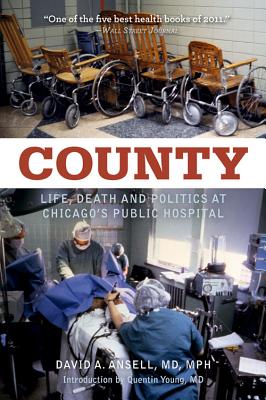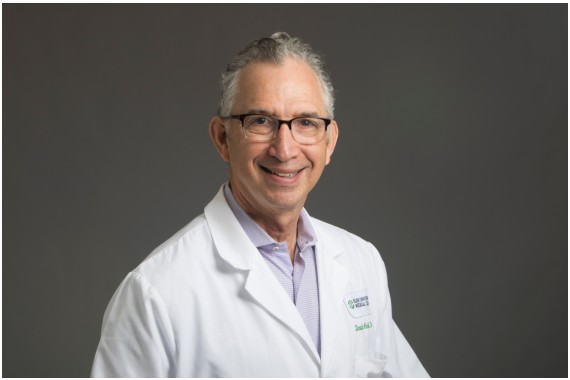

 Chicago Review Press
Chicago Review Press
County: Life, Death and Politics at Chicago's Public Hospital


Key Metrics
- David A Ansell
- Chicago Review Press
- Paperback
- 9780897337199
- 9 X 6 X 0.58 inches
- 0.84 pounds
- Medical > History
- English
 Secure Transaction
Secure TransactionBook Description
County is the amazing tale of one of America's oldest and most unusual urban public hospitals. From its inception as a poor house dispensing free medical care to indigents, Chicago's Cook County Hospital has been both a renowned teaching hospital and the health care provider of last resort for the city's uninsured. County covers more than thirty years of its history, beginning in the late 1970s when the author began his internship, to the final rounds in 2002, when hundreds of former trainees and personnel, many of whom shared Ansell's vision of resurrecting a hospital in critical condition, gathered to bid the iconic Victorian hospital building an emotional farewell before it was closed to make way for a new facility.County is about people--from Ansell's mentors, including the legendary Quentin Young, to the multitude of patients whom he and County's medical staff labored to diagnose and heal. It is a story about politics; from contentious union strikes, to battles against patient dumping. Most importantly, it chronicles the battles for instigating new programs that would help to prevent, rather than just treat, serious illnesses, including the opening of County's HIV/AIDS clinic (the first in the city), as well as an early-detection breast cancer screening program. Finally, it is about an idealistic young man's medical education in urban America, a coming-of-age story set against a backdrop of race, segregation, and poverty.
Author Bio
As Rush’s first leader of community health equity, a role he assumed in October of 2016, David Ansell leads Rush’s strategy to be a catalyst for community health and economic vitality on Chicago’s West Side. He previously was Rush’s senior vice president, system integration. Ansell joined Rush in 2005 as the Medical Center’s first chief medical officer (CMO) — a position he held until 2014 — as well as the associate dean and senior vice president for clinical affairs and the Michael E. Kelly MD Presidential Professor at Rush Medical College.
While Ansell was CMO, Rush was consistently among the top-performing academic medical centers in the United States with regard to quality and safety. He also served on the inaugural system board of the Cook County Health and Hospital System and served on a number of national committees within the CMO group of the Association of Academic Medical Centers.
In 2002, during his 10-year tenure as chairperson of the Department of Internal Medicine at Chicago’s Mount Sinai Hospital, Ansell co-founded the Sinai Urban Health Institute, which conducts health inequity research, develops innovative community health interventions, delivers community health worker training and consultation, and provides a broad scope of evaluation services.
After joining Rush, Ansell helped establish, in 2007, the not-for-profit Metropolitan Chicago Breast Cancer Taskforce, which focuses on ameliorating the higher breast cancer mortality rate among Black women. He currently is the chair of the taskforce's board.
He also contributed to the 2015 creation of the Center for Community Health Equity — a Chicago-based educational and research center jointly run by Rush University and DePaul University.
Beginning in 1978, Ansell spent 17 years at Chicago’s Cook County Hospital, where he implemented one of the first breast cancer screening programs in the United States. From 1993 to 1995, he served as the hospital’s division chief of general medicine and primary care.
Ansell recounted his experiences at Cook County Hospital in his critically acclaimed 2011 memoir, "County: Life, Death and Politics at Chicago’s Public Hospital." The University of Chicago Press published his second book, "The Death Gap: How Inequality Kills," in 2017.
As a co-author of a study in The New England Journal of Medicine, and through his testimony before the U.S. Congress, Ansell influenced the passage of the Emergency Medical Treatment and Active Labor Act in 1986 — a federal law that regulates the transfer of patients from one hospital to another. He also is the author of numerous other papers and book chapters on health disparities.
Ansell earned a bachelor's degree from Franklin and Marshall College in 1974 and his doctoral degree in medicine from SUNY Upstate Medical University in 1978. In 1991, he received a master's degree in public health from the University of Illinois School of Public Health.
Source: Rush University Medical Center
Videos










Community reviews
Write a ReviewNo Community reviews